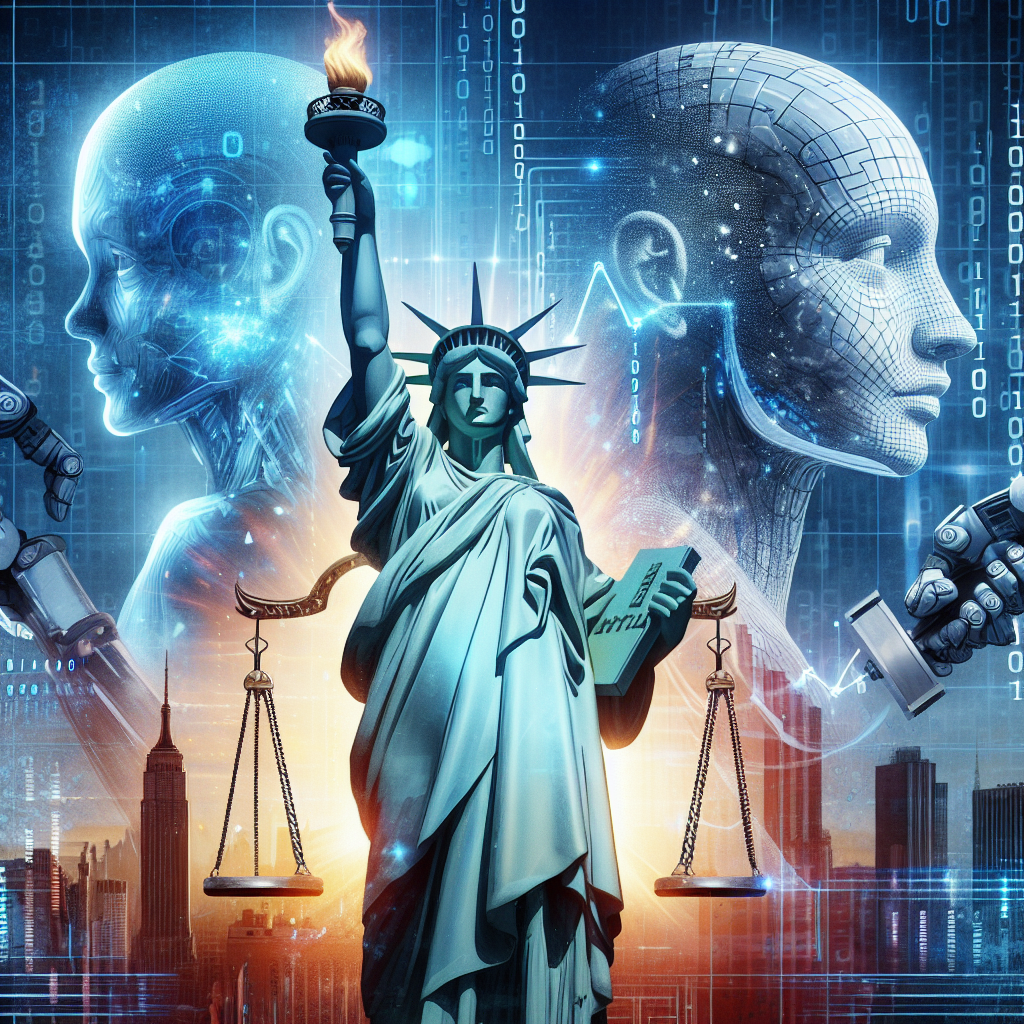Libertarianism and Artificial Intelligence: Ethical Implications
As artificial intelligence (AI) technology continues to advance and integrate into various aspects of society, discussions around its ethical implications grow increasingly pertinent. Among the many philosophical frameworks influencing these discussions, libertarianism stands out for its focus on individual liberty, personal responsibility, and limited government intervention. This article delves into the intersection of libertarianism and AI, exploring the ethical implications that arise as these two complex domains converge.
Understanding Libertarianism
Libertarianism is a political philosophy centered on the principles of individual freedom and autonomy. Libertarians advocate for minimal government intervention in personal lives, emphasizing that individuals should have the right to make their own choices as long as those choices do not infringe on the rights of others. The philosophy prioritizes personal responsibility, free markets, and voluntary associations, fostering an environment where individuals can make decisions based on their interests and values.
The Rise of Artificial Intelligence
Artificial intelligence has rapidly evolved from a niche technology to a transformative force that permeates everyday life. From machine learning algorithms to natural language processing, AI is reshaping industries, enhancing efficiency, and altering social dynamics. However, the widespread adoption of AI raises significant ethical questions, particularly concerning how technology interacts with human rights and individual freedoms.
Ethical Concerns: Libertarian Perspectives
The libertarian perspective brings unique insights to the ethical considerations surrounding AI. Here are some key issues:
1. Privacy and Surveillance
Libertarians fiercely advocate for individual privacy rights and are concerned about the potential for AI to enable mass surveillance. Technologies such as facial recognition and data mining can infringe upon personal freedoms and autonomy. The ethical implication here is whether the benefits of enhanced security through surveillance justify the erosion of privacy. Libertarians would argue that protecting individual privacy is paramount, and any AI implementation that compromises this right must be scrutinized.
2. Job Displacement and Economic Freedom
AI’s impact on the workforce is another ethical dilemma. While automation can lead to increased efficiency and lower costs, it also raises fears of job displacement. Libertarians believe in the free market’s ability to adapt, but they also recognize the responsibility of individuals and businesses to navigate this transition ethically. The question arises: how should society address the displaced workers? Libertarians might advocate for a market-driven solution that encourages retraining and innovation rather than government intervention.
3. Bias and Discrimination
AI systems often reflect the biases present in the data they are trained on, leading to ethical concerns about discrimination. Libertarians would argue that any application of AI that perpetuates these biases constitutes a violation of individual rights. The challenge lies in ensuring that AI is developed and employed in a manner that promotes fairness and equality, without relying on government regulations that could stifle innovation and economic freedom.
The Role of Government: Balancing Act
The libertarian stance on government intervention presents a significant ethical consideration in the realm of AI. While some advocate for strict regulations to prevent potential abuses of AI, libertarians are generally wary of government overreach. They argue that excessive regulation could hinder innovation and economic growth, as the freedom to create and innovate is essential for technological advancement. Striking a balance between safeguarding individual rights and fostering an environment conducive to innovation is a critical ethical dilemma that libertarians face in the context of AI.
The Future of AI and Libertarianism: Collaborative Solutions
The intersection of libertarianism and AI presents an opportunity for collaborative solutions that respect individual freedoms while ensuring ethical AI development. Engaging various stakeholders, including technologists, ethicists, and libertarians, can lead to frameworks that prioritize transparency, accountability, and individual rights.
1. Decentralization and Transparency
Libertarians often champion decentralized systems that limit the power of centralized authorities. In the AI context, promoting transparency in algorithms and decision-making processes can help mitigate ethical concerns. Decentralized AI models could empower individuals and communities, fostering a sense of ownership over technology and its implications.
2. Market-Driven Ethical Standards
Instead of relying solely on government regulation, a market-driven approach to establishing ethical standards in AI may align more closely with libertarian principles. Industry consortiums and voluntary guidelines can promote best practices in AI development while maintaining the freedom to innovate.
3. Public Awareness and Education
As AI technology evolves, public awareness and education about its ethical implications will be crucial. Libertarians may advocate for educational initiatives that empower individuals to understand their rights and responsibilities in an AI-driven world, promoting informed consent and personal agency.
Conclusion: Navigating Ethical Implications
The ethical implications of artificial intelligence intersecting with libertarianism present a complex landscape of challenges and opportunities. Emphasizing individual freedoms, privacy rights, and personal responsibility, libertarianism offers valuable perspectives on navigating the ethical dilemmas that arise from AI development and implementation. By fostering collaboration among stakeholders and promoting transparency, we can work toward a future where technology enhances individual liberties rather than undermining them, ensuring that the ethical implications of AI align with the values of freedom and autonomy that libertarians hold dear.
Share this content:












Post Comment